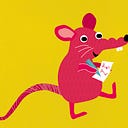All Those Roads Not Taken
“For all the sad words of tongue or pen, the saddest are these: ‘It might have been!’” These well-known words (okay, well-known to everyone other than me apparently) appear in John Greenleaf Whittier’s poem “Maud Muller.” In it, farmer girl Maud meets a judge, they talk, and he rides away. As that happens, she wonders what it would be like to be a judge’s wife while he wonders what it might be like to be a local farmer married to the fetching Maud (“Beneath her torn hat glowed the wealth of simple beauty and rustic health”). Maud later regrets that “I the Judge’s wife might be! He would dress me up in silks so fine, And praise and toast me at his wine.” Her feeling is described as “a negative conscious and emotional reaction to one’s personal decision-making, a choice resulting in action or inaction.” A more technical description sees regret at a “negative emotion predicated on an upward, self-focused, counterfactual inference.” The “counterfactual” refers to “things that — in the present — now could never happen in reality because they solely pertain to events that have occurred in the past.”
I looked up “regret” today because a few days ago, listening to NPR, we learned of the Regret Lab at Miami University’s Department of Psychology. The lab focuses its research on “understanding when and why people think about ‘what might have been,’ and the impact of these thoughts in applied, everyday contexts.” According to their web page, counterfactual thoughts “have important influences on behavior, and also drive the experience of regret, the negative emotion stemming from the realization that one’s actions could have resulted in better outcomes than actually occurred.”
One of the positive benefits of regret is that it teaches you, supposedly, to avoid repeating any action that did not lead to a “better outcome.” For example, as a child, I got the idea that it would be fun to jump out of a cardboard box placed on top of a picnic table and onto the ground (oh, the foolishness, okay, the Jackass stupidity, of youth). I jumped. The box slid backward. I failed to reach escape velocity and broke my forearm on the table’s edge on the way down. My regret today is that I did not take the time to study Newton’s laws of motion before stepping into the box. Had I done so, I either would not have set foot in it or would have moved it close to the edge of the table before leaping. Since then, however, I have never attempted to leap out of cardboard boxes sitting on top of picnic tables, so I guess regretful thoughts do keep us from some harm.
I’m not convinced, however, that wistful thinking is the best use of our time. Neither is Patrick Allan, who offers instructions on “How to Avoid a Life of Regret.” Patrick quotes a Cornell University study that came to this conclusion:
When we evaluate our lives, we think about whether we’re heading toward our ideal selves, becoming the person we’d like to be. Those are the regrets that are going to stick with you, because they are what you look at through the windshield of life. The “ought” regrets are potholes in the road. Those were problems, but now they’re behind you.
The researchers write about the actual self (who we are), the ideal self (who we would like to be), and the ought self (who we think we ought to be based on obligations and responsibilities). According to the study, “people regret their inactions more than their actions in the long term.” Patrick advises us to SNAP OUT OF IT: “You can’t fix what was never done in the first place.” His solution to regrets looming on the time horizon: “The remedy is clear: take action while you can.”
Well, okay, but that would mean getting up out of my chair. My solution to combatting regret is to think of the past not in terms of what I might have missed but of what I probably avoided. Bret Harte wrote a parody of the Whitter’s “Maud Muller” poem. In it, Maud married the judge, had twins, and “grew broad and red and stout.” The judge wonders “had he waited, he might have wed some maiden fair and thoroughbred, for there be women fair as she whose verbs and nouns do more agree.” Maud finds the judge to be a bore “with all his learning and all his lore.” “If,” Bret concludes, “of all the words of tongue and pen, the saddest are, ‘It might have been,’ more sad are these we daily see: ‘It is, but hadn’t out to be,’” which is just an obtuse way of saying “be careful what you wish for.” Words to live by? If, however, you can’t avoid gazing pensively into the review mirror, you can at least protect yourself from having these thoughts come back to chomp you in the ass. Order one of my soon-to-be patented Counterfactual Inference Butt-Bite Protectors (CIBBPs, for short [pronounced “seebipps”). It’s sort of an adult diaper combined with a bulletproof vest. A little bulky and unsightly perhaps, but well worth the peace of mind provided and they are half-price until next Tuesday.
Image: John Greenleaf Whittier’s fictional heroine Maud Muller gazes into the distance, regretting her inaction and thinking about what might have been. Public Domain.
